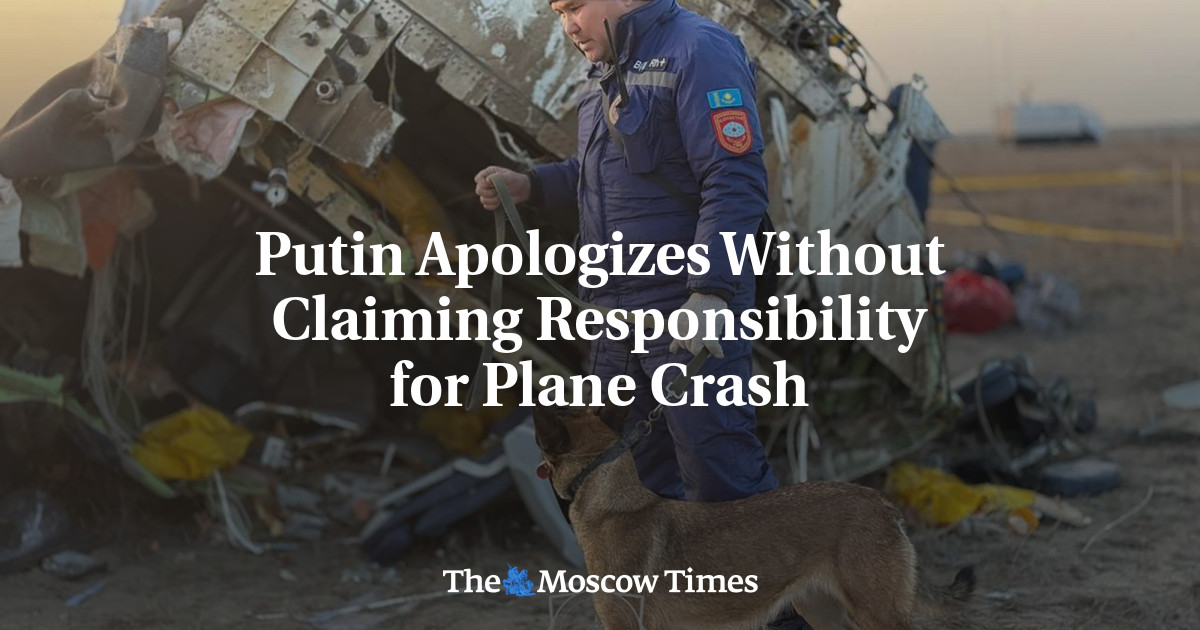An anti-Israeli mob stormed Makhachkala International Airport in the North Caucasus republic of Dagestan on Sunday evening, seeking to attack Jews and Israelis rumored to have arrived on a flight from Tel Aviv.
To some observers, the scenes harked back to the pogroms of the 19th and early 20th centuries, during which Jews in the Russian Empire were victims of property destruction, rape and murder. While the mob did not appear to have found any of their Jewish or Israeli targets, the events raise a number of questions:
What has the mood in Dagestan been like since the outbreak of the latest Israel-Hamas war? How have Russian officials reacted? What is the history of Judaism in Dagestan? How are Jews in Dagestan at risk?
How has Dagestan responded to the latest violence in Israel and Gaza?
The airport riot took place as Israel ramped up its offensive on the Gaza Strip that was sparked by the Hamas militant groups' devastating incursion on Oct. 7. The deaths of thousands of Palestinian civilians and rumors of an impending ground invasion of Gaza have led to protests worldwide, particularly in Muslim communities.
Russia has sought to remain neutral on the Israel-Hamas conflict, while Russian state media have used constant footage of Palestinian suffering to highlight Western hypocrisy, contrasting the West's support for Israel with its condemnation of Russian actions in Ukraine.
Meanwhile, on Oct. 28 hundreds gathered outside two hotels in the western Dagestan city of Khasavyurt after rumors spread that the hotels were “full of Jews.” The crowds, carrying Palestinian flags and throwing stones at windows, demanded the eviction of Israelis and checked guest passports to ensure they were not Israeli. The management of one hotel put up a sign saying “ENTRANCE IS STRICTLY FORBIDDEN for foreign citizens of ISRAEL (JEWS)!!! (AND THEY DO NOT LIVE HERE!!!!!).” The mob did not find any Jews.
On the same day, an unsanctioned anti-Israel rally took place in Makhachkala.
Approximately 1,200 people were reported to have participated in Sunday's airport riot, throwing objects at police, waving Palestinian flags with slogans like “Dagestan is with you” and searching the tarmac for Jews. At least 20 people were reportedly injured, with two police officers hospitalized and two civilians in critical condition.
How have authorities reacted?
Dagestan Governor Sergei Melikov blamed “external enemies of our country” for the events, saying that young “hotheads” had “succumbed to provocations and allowed themselves to be manipulated.”
He blamed a purportedly Ukraine-based Telegram channel for spreading rumors about the arrival of “Israeli refugees” in the majority Muslim region.
The Telegram channel, Utro Dagestan, responded by denying any connections to Ukraine, emphasizing that the channel was run by a Muslim person and that it was firmly opposed to Ukrainian President Volodymyr Zelensky’s support of the “Zionist, bastard Israeli regime.”
Kremlin spokesman Dmitry Peskov also blamed the events on “outside influence,” while Foreign Ministry spokeswoman Maria Zakharova said Ukraine played a “direct and key role” in the “provocation.”
Russian Orthodox Church head Patriarch Kirill called the riot “an attempt to sow discord between Muslims and Jews in Russia, who over centuries maintained good relations of friendship and cooperation.”
The North Caucasus Coordinating Center for Muslims called on Muslims to not allow themselves to be used as tools to incite interfaith hatred in the North Caucasus, where Jews that have nothing to do with “the genocide of Palestinians by Israel” have lived for centuries.
The center quoted President Vladimir Putin's statement that “interethnic and interreligious harmony is the basis of Russian statehood,” and added that “anti-Semitism has no place in the multinational North Caucasus.”
Ovadya Isakov, a Derbent rabbi and representative of the Chief Rabbinate of Russia, called the reaction of Dagestan residents “obvious and understandable” in comments to the Podyom news outlet. “Simply, Israel lost the information war,” he said.
While local political and religious leaders stopped short of blaming the rioters for their behavior at the airport and elsewhere, regional police said “More than 150 active participants of the riots have been identified, 60 of them have been detained and taken in for further investigation.”
Rabbi Alexander Boroda, the president of Russia's Federation of Jewish Communities, called for “the country's leadership and law enforcement agencies to find and punish all the organizers and participants of these anti-Semitic actions in the strictest possible manner.”
Flights from Tel Aviv to Makhachkala and another North Caucasus city, Mineralniye Vody, have been redirected to other Russian cities.
Are there Jews in Dagestan who are at risk of violence?
Videos appeared to show passengers from the plane claiming to be locals who had traveled abroad for medical reasons, rather than rumored “Jewish refugees.”
Fifteen Israelis on the plane, most of whom had a layover in Makhachkala on the way to Moscow, were reportedly evacuated by a military helicopter. Israeli news site Ynet reported that one evacuee, asked by protesters if he was Jewish, lied and said he was Muslim. The evacuee said most of the Israeli citizens also had foreign passports and spoke Russian.
There are local Jewish populations at risk nonetheless. The history of Judaism in Dagestan spans over 1,000 years to migrations of Jewish populations from Persia to the region. However, this population, which once numbered over 30,000, has shrunk dramatically since the Soviet collapse, with large numbers of Dagestani Jews emigrating to the U.S., Canada and Israel.
Rabbi Isakov said there were 300 to 400 families of Jews in the southern city of Derbent and about the same number in the rest of Dagestan. He added that they do not feel safe, but do not know what to do either.
He said one Jewish woman who called the police for help was told by an officer: “Well, you see what you are doing to their children there [in Gaza].”
While there are patrols and guards at the synagogue, he said this incident had lessened his faith in the local police.
The region’s shrunken Jewish population has faced anti-Semitic threats before: all of the windows at the Makhachkala synagogue were smashed in 2007; Jewish graves have been vandalized; and bricks and bombs have been thrown into Jewish homes and synagogues.
Nonetheless, this latest escalation might be the last straw; the few Jews who remain are considering leaving, potentially ending a centuries-long presence in the region.
Isakov, who had remained in Derbent after an assassination attempt by Islamist extremists, was planning to leave Dagestan for elsewhere in Russia, but said he was not sure if it would help.
“Should we even leave?” he asked. “Russia is not salvation, there were pogroms in Russia too. It’s not clear where to run.”
 (1).png)
 1 year ago
15
1 year ago
15













